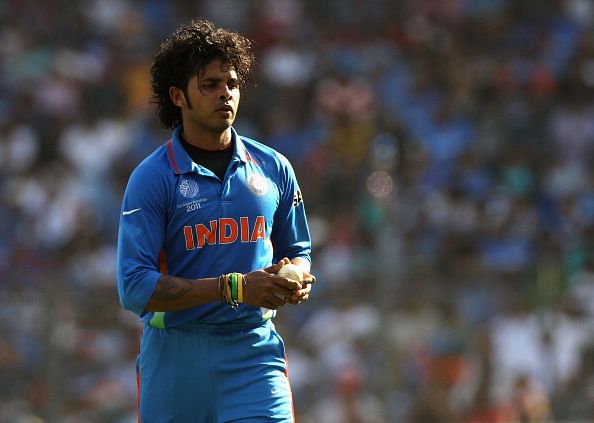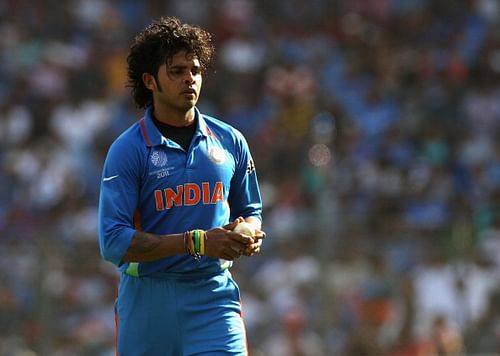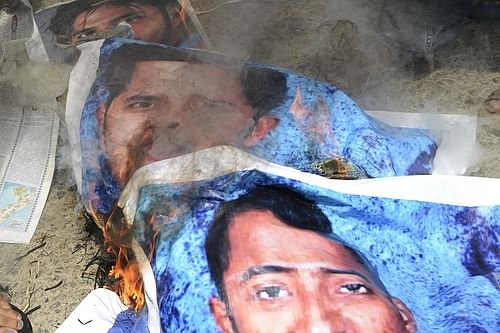
IPL 6: Weed out spot-fixing, don't demolish the structure

The spot fixing endemic has caught up with the IPL. For 6 years, it looked like a question of when. Three folks from Rajasthan Royals have answered that for us. Sreesanth, Chavan and Chandila were arrested by the Delhi Police and taken for interrogation, on suspicions of spot-fixing. With the conclusive evidence, the suspicions are no longer just that. It’s an extremely sad day for Rajasthan Royals, IPL and cricket in general.
Spot-fixing is quite a new trend in the betting industry. It is much safer and opaque than match-fixing. Asking a bowler to bowl a no-ball or to concede ‘x’ number of runs in an over seldom affects the cricket match as a whole. But it is more than enough to load the bookie’s pockets and make the player’s purse a bit heavy as well. It’s a win-win situation until caught.
The lid started coming off with the 2010 Pakistan’s tour of England. The trio of Aamir, Asif and Butt were caught in one of the most storied cricketing controversies. They were given life bans and jail sentences, in addition to their image getting tainted. Stories of spot-fixing in the English county started erupting. There were a few murmurs doing rounds of international matches being rigged. Last year, TP Sudhindra of Andhra Pradesh was given a life ban after bowling an intentional no-ball in a local league match. And, it has finally seeped into the IPL.
The incident is a shame for the IPL and Indian cricket as a whole. Cricket has been kind to lots of these local cricketers and they earn good money for the 2 months they spend in the IPL. So, what makes these players disregard the game of cricket, the game they love(d), the game they have dedicated their lives to? Well, greed is the simplest of answers; the greed to earn some quick bucks.
The IPL and their franchises give them much more than they would ever need, but it apparently is not enough to quench their greed. How else do you explain Sreesanth, a 2 time World Cup winner and Test cricketer who is worth 400k USD in the IPL, agreeing to leak greater than 14 runs in an over a “measly” 40 lacs? How else do you explain Chandila, a proven performer for the Royals and Chavan, a well-known name in the Ranji circuit, risk giving up their reputations and careers for a few digits added to their bank accounts? Chandila and Chavan, with their relatively lower contract values might have fallen into the lustful trap of greed, seeing their compatriots earning much fatter paychecks. But Sreesanth’s actions are perplexing to say the least. How the lure for some quick bucks becomes greater than a possible chance of representing your country is beyond anyone’s comprehension.
The punishments doled out to the Pakistani trio in 2010 were quite harsh in the view of a few, but it was expected and supposed to instil fear among the players. Yes, it was different as it was under the purview of the ICC and Scotland Yard, but the concerned people were hopeful that it would be a firm deterrent to fixing of any form in cricket. Sadly, that hasn’t been the case. Betting has reared its ugly head yet again. It is scary to imagine that if the fear of the punishments is not enough to stop them, what is? There will be calls for stringent rules, but what exactly are they? I mean keeping a tab on each player’s phone and activities around the clock is not a feasible or ethical option.
From cricket’s point of view, the ICC or BCCI can do only as much as making stringent rules and mete life bans or fines. A complete end of the fixing scandals can only be achieved if the illegal betting rackets are strangulated and weeded out of the system. Or, betting in India can be made legal in an effort to manage it better while keeping the threat of fixing of matches away. Another option, pertinent to the IPL, can be including even the uncapped players in the auction. Ensure all players have an equal chance of earning. BCCI should let go of its ego and seek ICC’s assistance in tackling the issues of betting and fixing.

The media and twitterati have had their voices made public as usual and have called for culling the IPL. Such extreme reactions are understandable, but certainly not necessary. Scrapping the biggest T20 league in the world, which has given the fans some enthralling cricket, just because a few individuals sell themselves out for money is not the solution. It would be equivalent to questioning the integrity of every single player who is a part of the tournament, which is rather disappointing. FIFA has had its fair share of issues with match-fixing, including in as grand a stage as the World Cup. Even most of the governments around the world are corrupt. That doesn’t mean we ban the football World Cup or the governments. Weeding out, and not demolishing establishments, is the solution.
The saddest part about this entire scandal is that it was done by 3 players who played under the captaincy of Rahul Dravid. Dravid is one man who embodies the spirit of the game. It is a shame that he had to play along with the tainted trio. Hopefully, this is the last we see of such scandals and integrity doesn’t just become a buzzword associated with the gentleman’s game.